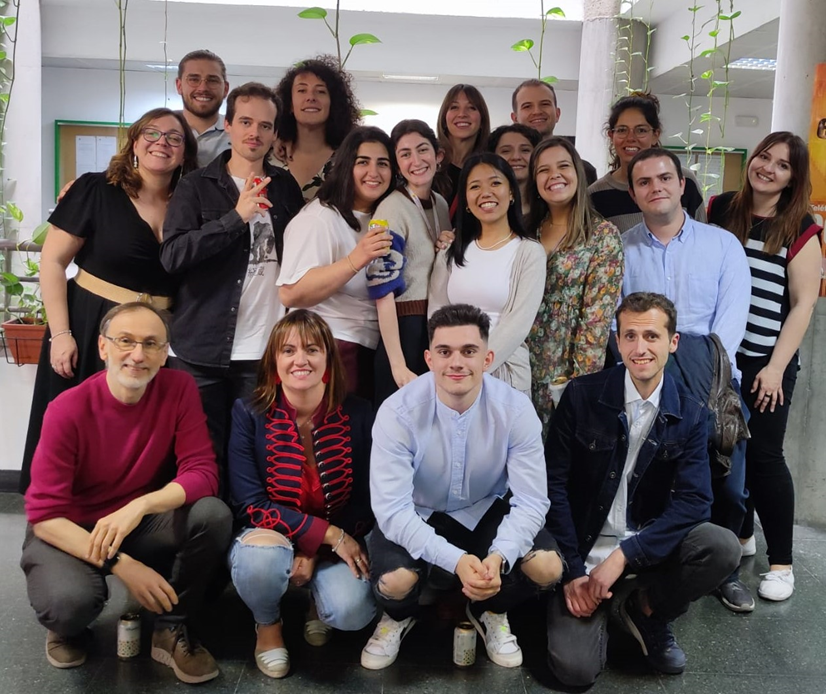
Faculty of Biology, Building B, Laboratory 7
C/ José Antonio Nováis nº 12, 28040 Madrid

Since 2001, our group at the Faculty of Biology of the Complutense University of Madrid has been developing a line of research focused on the study of the molecular mechanisms underlying the antitumoural action of cannabinoids. This line has given rise to other lines of research, all related to translational oncology.
Mechanism of antitumour action of cannabinoids
One of the objectives of our research is to try to dissect the molecular mechanisms responsible for the antitumour action of cannabinoids. This objective is aimed not only at optimising the action of these compounds, but also at identifying new molecular targets that will allow the design of pharmacological strategies aimed at reducing tumour growth.
Optimising the antitumour action of cannabinoids
One of the main reasons for the high mortality of many tumours (specially, glioblastoma multiforme) is their high resistance to conventional treatments. It is therefore particularly important to try to establish new targeted therapies that apply the most effective combination of anti-tumour agents to each patient and tumour type. Some of the ongoing projects in our group are analysing the factors of resistance to the action of cannabinoids, as well as developing possible combination therapies to improve the efficacy of these drugs.
Dual role of autophagy in cancer
One of the potential new targets for anti-tumour drug action that we have identified in our research is the stimulation of autophagy. Autophagy is a complex cellular process that allows the autodigestion of certain cytoplasmic components and can be both cytoprotective and promote cell death. One of the lab’s ongoing projects aims to determine the differential regulatory mechanisms that lead to the stimulation of autophagy-mediated death of tumour cells. We also studied the involvement of autophagy in cancer, with special attention to the role played by the AMBRA1 protein.
Role of Tribbles proteins in cancer
Another of the objectives of our research has focused on the study of the role of Tribbles pseudokinases and, in particular, of one of the members of this family; TRIB3. This protein is increased following treatment of tumour cells with cannabinoids, leading to inhibition of the AKT/mTORC1 axis, and contributing to the induction of autophagy. Another line of work currently underway in our group is aimed at studying the tumour suppressor role of TRIB3 in different cancer models.